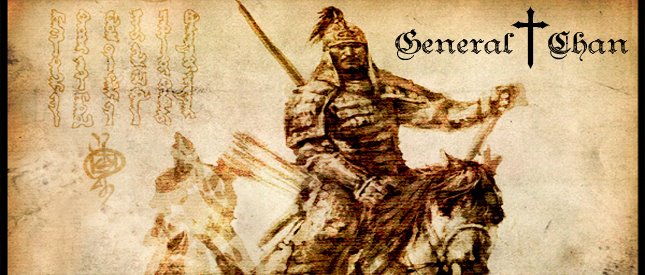
Legendary Three Kingdoms era strategist Zhuge Liang once said:
"The Sharpest Arrow in the World would not penetrate a thin silk cloth at the end of its flight"
Do take a moment to ponder what Zhuge Liang meant by the above quote.
A sharp arrow being released from a bow of an archer will pierce through everything in its wake...However, after a period of time, the arrow loses kinetic energy and it starts to slow down...
And what happens when the arrow slows down?
It would not pierce through anything as cleanly as before.
And when finally the arrow loses all its initial kinetic energy, it falls to the ground: Useless.
And that is when a sharp arrow is at its most vulnerable...
Well, in layman terms, the actual meaning of this quote is basically: Everything will meet its end.
There is a limit to everything.
And likewise, there is only a sharp pinnacle or peak of energy of a military offensive before the offensive begins to wear itself out.
Many atimes in history have we seen an example of a military campaign (offensive campaign) that got bogged down after losing its initial energy in hostile territory and then slowly began to wear itself out.
And when the offensive is worn out totally, the time would be ripe for the adversary to launch a counter-offensive to gain the lost initiative.
That is what Zhuge Liang meant.
A powerful, dreadful, well-supplied, well-trained, well-fed, numerous, superior army when being deployed to the front for an offensive is like that of a sharp arrow.
At the beginning of the campaign, its adversary will have trouble dealing with this particular threat... and that is if the adversary chooses to meet this threat as soon as he could.
If the "arrow" is being drawn in and allowed to slowly wear out by manipulating time and space against it, it will meet its end.
We have seen this many atimes in history:
- When Three Kingdoms (208AD-280AD) era warlord Cao Cao assembled a huge army (some Chinese historians say only 8,000 men were deployed while the records say 800,000, and I personally allign my view to Professor Yi Zhongtian of Xiamen University-roughly about 200,000 to 400,000 men) for his southern expedition against the rival warlords Liu Bei and Sun Quan of Wu, his army met destruction at Red Cliff. His army (Chinese infantry, Chinese mounted infantry, Steppe mercenary horsemen) was like an arrow at the end of its flight; having marched from a long way as far north as Liaodong; and his men were naturally tired and worn-out.
- The German invasion of Russia during the second world war is another perfect example of a sharp arrow at the end of its flight. Before Operation Barbarossa the Wehrmacht was at its prime condition. The German mechanized divisions were also at its prime and the "arrow" was not only sharp but also thick due to the scale of the campaign in which how the Germans conducted it. However, the arrow lost its energy; and of course, with the help of General Winter, Russia's best ally, the Germans lost the initiative and the Wehrmacht was at the end of its flight following the Battle of Moscow in late 1941.
- Napoleon Bonaparte's 1812 invasion of Russia is definitely a must-said and also another perfect example of an arrow at the end of its flight. His Grande Armee de la France was decimated on the cold and frozen steppes of Russia. Again, his Grande Armee was at the peak of its power before the army crossed the Niemen river (border between French control and Russian territory). The Russians choose to avoid the "arrow" and let it fly all the way into Moscow itself. And of course, General Winter aided the Russians as we have seen through history.
Of course the list is not exhaustive and there are many many more examples but the above three is famous and clear as lessons for the commander about the energy of an offensive.
The energy must be grasped and exploited by the commander and deployed rapidly and efficiently for the success of a campaign.
For the defender who is up against this arrow: choosing to avoid direct confrontation is the best and wisest strategy. Manipulate and do everything it takes to enable the arrow to lose its energy as fast as possible, and when the initiative is gone and the "arrow" hits the floor, the time to counterstrike has come.
After all, SunZi said:
"In the morning, the soldiers are spirited and ready for battle. By noon, they grow weary and lackadaisical. By evening, they lose their vigilance and spirit."
I'll be back soon, and til then,
Godspeed.


WOW... educational indeed. I'm glad u do learn lessons from the past :D
ReplyDeleteMhm, I agree with the first poster ^_^
ReplyDeleteI am a very big fan of Zhuge Liang and also think readers of the above would enjoy watching a movie about The Battle of Red Cliff ^_^
Parts 1 & 2:
http://www.megavideo.com/?v=ZAI230FS
http://www.megavideo.com/?v=62J4QVG2
Enjoy ^_^
Red Cliff 2
ReplyDeleteParts 1-4:
http://megavideo.com/?v=E194HA62
http://megavideo.com/?v=I0WQFQO8
http://megavideo.com/?v=5LHDARFE
http://megavideo.com/?v=HSDVV1CU
I hope you loved it as much as I did ^_^